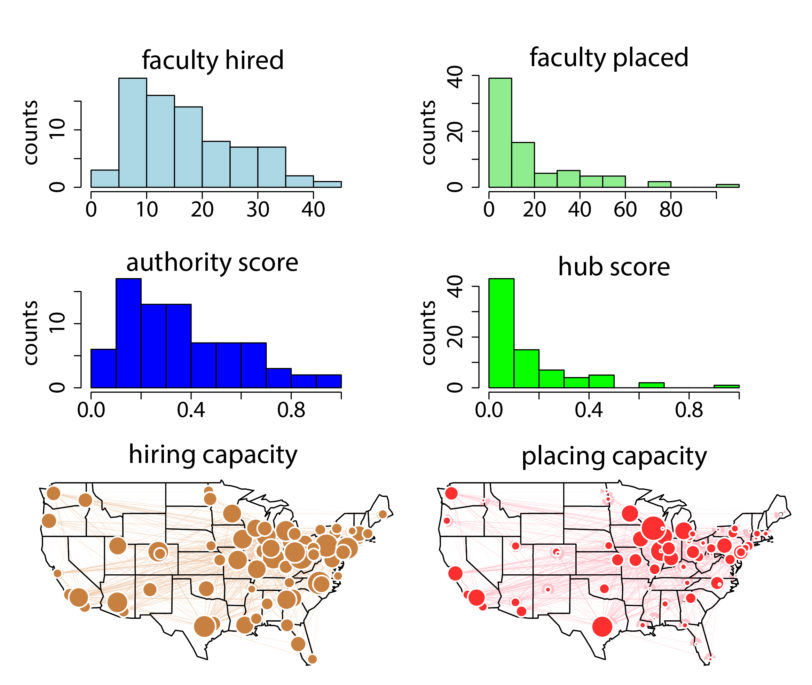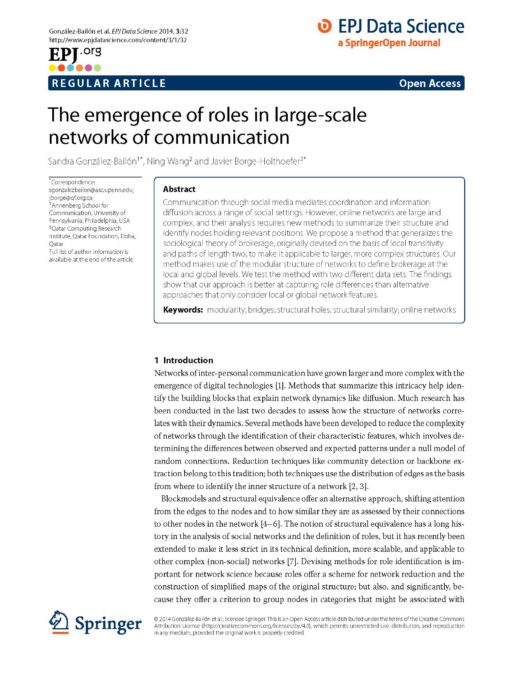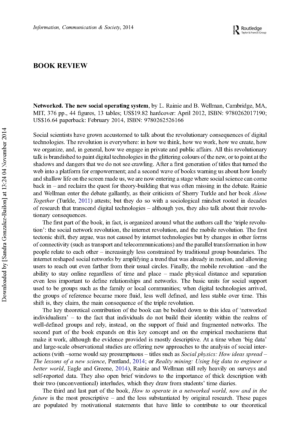
Abstract: We analyze hiring and placement dynamics across communication Ph.D. programs using data collected in 2014. We assess changes compared to data collected in 2007 (as reported in
Barnett, Danowski, Feeley, & Stalker, 2010), and we identify the factors that underlie the formation of recruitment ties. Our findings challenge prior conclusions that faculty-hiring patterns offer a good proxy to the quality of doctoral education. Instead, we find evidence that the recruitment network results from inter-organizational dynamics that are likely to emerge from faculty mobility; these dynamics are manifested in the form of reciprocity, transitivity, and cumulative advantage. Once we control for these network characteristics, institutional prestige, faculty seniority, and reputational rankings modestly drive the formation of recruitment ties.










